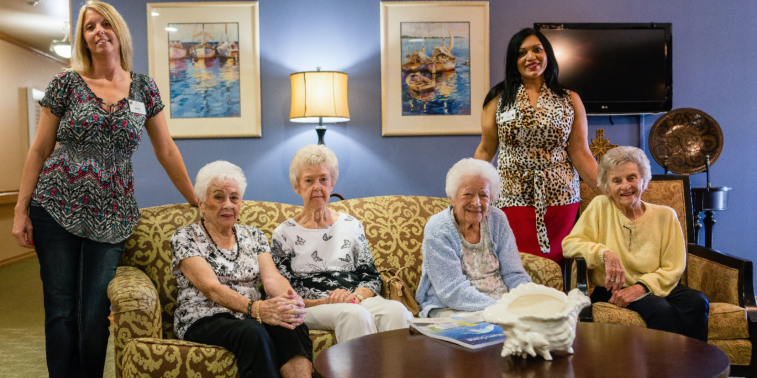Choosing the Perfect Charlotte Care Home: Trick Elements to Consider for Your Family
Choosing the Perfect Charlotte Care Home: Trick Elements to Consider for Your Family
Blog Article
Just How to Give Individualized and significant Mental deterioration Treatment
The arrangement of personalized and significant dementia care calls for a nuanced understanding of each individual's unique history and choices. Care techniques need to be customized to involve the individual in methods that resonate with their past experiences, thus promoting emotional connections and boosting general well-being.
Recognizing Mental Deterioration Originality

Care carriers need to evaluate cognitive capabilities, emotions, and behavior patterns to develop personalized treatment plans. This might consist of adapting communication designs, utilizing familiar routines, and making use of significant tasks that resonate with the individual's previous experiences. As an example, engaging an individual with a passion for songs via music activities may evoke favorable memories and boost psychological well-being.
Furthermore, recognizing originality fosters a thoughtful method that appreciates the self-respect and freedom of those coping with mental deterioration. It motivates caretakers to pay attention actively, observe behavioral signs, and remain versatile in their caregiving approaches (charlotte care home). By prioritizing individuality, caretakers can not just improve the lifestyle for those with mental deterioration but also construct an extra extensive understanding of their distinct viewpoints, inevitably leading to extra efficient and compassionate care
Structure Trust and Rapport
Establishing trust and relationship is basic in dementia care, as it develops a encouraging and secure setting for individuals affected by the problem. Building these links needs consistent, caring interactions that focus on the needs and feelings of the person. Caretakers have to come close to communications with compassion, acknowledging the one-of-a-kind difficulties dealt with by those with mental deterioration, including memory loss, confusion, and emotional distress.
Caretakers must utilize clear, straightforward language and non-verbal hints to share understanding and support. Active listening demonstrates respect and recognition, enabling people to reveal themselves without concern of judgment.
Establishing a routine can additionally enhance trust. Knowledge with daily activities and caregivers advertises a sense of stability, making it possible for individuals to really feel even more secure. It is important to involve with individuals on a personal level, putting in the time to find out about their biography, choices, and passions. By doing so, caregivers enhance the individual's identity, advertising self-respect and regard, ultimately leading to more powerful, much more purposeful relationships in the context of mental deterioration care.
Tailoring Tasks and Involvement
Engaging people with dementia through customized activities can substantially enhance their high quality of life and foster a much deeper connection between caregivers and those in their treatment. Personalization is important, as it recognizes the distinct histories, passions, and capabilities of each individual. Tasks need to be designed to stimulate cognitive features, promote physical activity, and motivate social interaction, all while staying enjoyable and satisfying.
To tailor tasks effectively, it is vital to examine the individual's preferences and cognitive capabilities. In addition, incorporating elements of routine can supply comfort and stability, permitting individuals to engage with tasks extra with confidence.
Caregivers can improve involvement by getting involved alongside the individuals, fostering a helpful and interactive atmosphere. It is additionally crucial to Go Here continue to be flexible and versatile, adjusting tasks as needed based on the person's power levels and state of mind. Eventually, meaningful interaction through tailored tasks not just uplifts people with dementia yet additionally improves the caregiver relationship, advertising mutual pleasure and understanding.
Effective Communication Strategies
Effective interaction is essential in mental deterioration treatment, as it fosters a feeling of connection and understanding in between caretakers and individuals experiencing cognitive decline. Using effective interaction strategies can substantially improve the high quality of communications and decrease disappointment for both events.
Firstly, utilizing basic, clear language is essential. Familiar words and short sentences aid individuals comprehend and respond much better. Additionally, maintaining a tranquility and favorable tone can create a calming environment, which is crucial for individuals that may really feel nervous or baffled.
Non-verbal communication plays a considerable duty. Caregivers should take note of body language, faces, and gestures, as these hints can usually convey greater than words - memory care facilities charlotte. Establishing eye call and making use of gentle touch can additionally share and reinforce connections empathy
Active listening is an additional essential component. Caregivers should be mindful, permitting individuals to reveal themselves completely, even if their speech is fragmented or unclear. This lionizes and urges extra open interaction.
Finally, confirming sensations and experiences is vital. Recognizing feelings, no matter of their basis in truth, can provide convenience and strengthen the caregiver-individual relationship, advertising a more helpful ambience.
Sustaining Household Participation
Family participation plays a considerable function in the total care and support of people with dementia. Involving household members produces a collaborative environment that enhances the high quality of care, fosters psychological connections, and guarantees that the distinct needs of the individual are satisfied. Relative usually possess indispensable insights into the person's background, preferences, and habits, which can be important in developing personalized care approaches.

In addition, member of the family can be motivated to join daily treatment tasks, such as involving in meaningful conversations or helping with familiar regimens. This not just aids endure the individual's sense of identification however also reinforces domestic bonds. Eventually, by fostering an inclusive method that values household contributions, treatment carriers can improve the general experience for both people with dementia and their liked ones.
Final Thought
In verdict, supplying individualized and meaningful dementia treatment demands a thorough understanding of each person's unique history and preferences. Jointly, these approaches add to boosted quality of life for people with mental deterioration.
The provision of significant and personalized dementia treatment needs a nuanced understanding of why not look here each person's unique background and preferences. By doing so, caretakers reinforce the individual's identification, promoting dignity and regard, eventually leading to stronger, more significant partnerships in the context of dementia care.
Engaging people with dementia via tailored activities can considerably boost their top quality of life and cultivate a much deeper connection in between caregivers and those in their treatment.Family members participation plays a substantial duty in the total care and assistance of people with dementia. Inevitably, by promoting an inclusive method that values family members contributions, treatment suppliers can improve the general experience for both people with mental deterioration and their liked ones.
Report this page